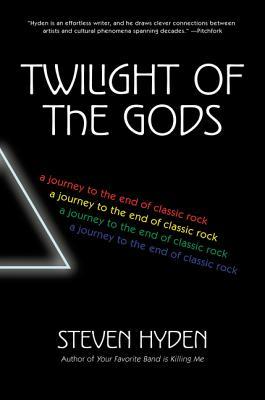More on this book
Community
Kindle Notes & Highlights
by
Steven Hyden
Read between
September 5 - September 10, 2019
For many of the people in my immediate vicinity, it was clear that the Beatles (to say nothing of McCartney’s solo career) ceased to be a going concern once the Summer of Love commenced. Anything in the set list that was even mildly psychedelic—“The Fool on the Hill,” “Being for the Benefit of Mr. Kite”—went over like Timothy Leary at the 1968 Republican National Convention. Apparently, there are still people for whom Sgt. Pepper is a radical—perhaps too radical—musical experiment. This wasn’t a classic-rock-radio crowd, it was an oldies-radio crowd. I, too, was hoping to hear my favorite
...more
Apparently, Paul McCartney and I were on the same wavelength that night, because five songs into the set, he played a number that only a small, demented fraction of the audience wanted to hear. And yet there he was, jamming on “Temporary Secretary,” seemingly oblivious to the mass confusion created by the song’s mind-bending mess of synth bleeps and slashing acoustic guitar and McCartney’s robo-ranting about needing a woman who can be a belly dancer but not a true romancer. I loved it, and I loved how the people around me didn’t love it.
McCartney II has similarly attained cult status among indie fans and artists who regard it as forward-thinking avant-electronica. But those people didn’t hear McCartney II in the context in which it was released. The album came out four months after McCartney spent nine days in a Japanese jail for possession of 219 grams of weed while on tour with Wings. The band fell apart after the tour was canceled, prompting McCartney to release his solo recordings as McCartney II. It’s not difficult to understand why McCartney was perceived at the time to be sort of dumb and perpetually stoned, and how
...more
I’ve repeated this process with virtually every major classic-rock artist and band that I love. I am now fully versed in the postsixties work of the Kinks, even the double-album rock operas that go on for forty-two hours. I enjoy at least one Doors album, An American Prayer, that was completed and released seven years after Jim Morrison died. I will defend not only both Page & Plant albums, but also the Page & Coverdale record. I own albums by every iteration of Crosby, Stills, Nash and Young, and will argue that Crosby & Nash is in fact better than CSNY (though not CSN). I’m still not crazy
...more
“This era and the collapse of its bright and flimsy liberation are what the Stones leave behind with the last song of Let It Bleed,” Greil Marcus wrote in Rolling Stone when the album was released. “The dreams of having it all are gone, and the album ends with a song about compromises with what you want—learning to take what you can get, because the rules have changed with the death of the ’60s.”
This view was forwarded most prominently by music critic Dave Marsh in Rolling Stone, who observed at the end of 1979 that “white males, eighteen to thirty-four, are the most likely to see disco as the product of homosexuals, blacks and [Latinos], and therefore they’re most likely to respond to appeals to wipe out such threats to their security.”
That is the sum total of what “rock” is now for the people who listen to rock radio and attend festivals like Rock Fest—an inscrutable equation that plugs old-world rock hedonism passed down fourth-hand from Led Zeppelin and Aerosmith into the bludgeoning, sadomasochistic sonic textures of post-grunge and nu metal. It’s party music for people who hate their lives.
Let’s say you’re on a date, and it’s going really well. Your date is attractive, funny, kind, and not insane. You are 73 percent sure you want to sleep with this person. Then, over your third round of drinks, your date casually mentions that she is a serious collector of Precious Moments figurines. She has hundreds of them—so many that the figurines have their own room in her apartment. Would this change your impression of your date? Perhaps not—but it’s pretty fucking strange, right? Collecting Precious Moments figurines surely doesn’t make a person more attractive. That’s what being a Phish
...more
That’s the real reason why music critics and cool kids hate Phish so much—they operate as if punk never happened.


